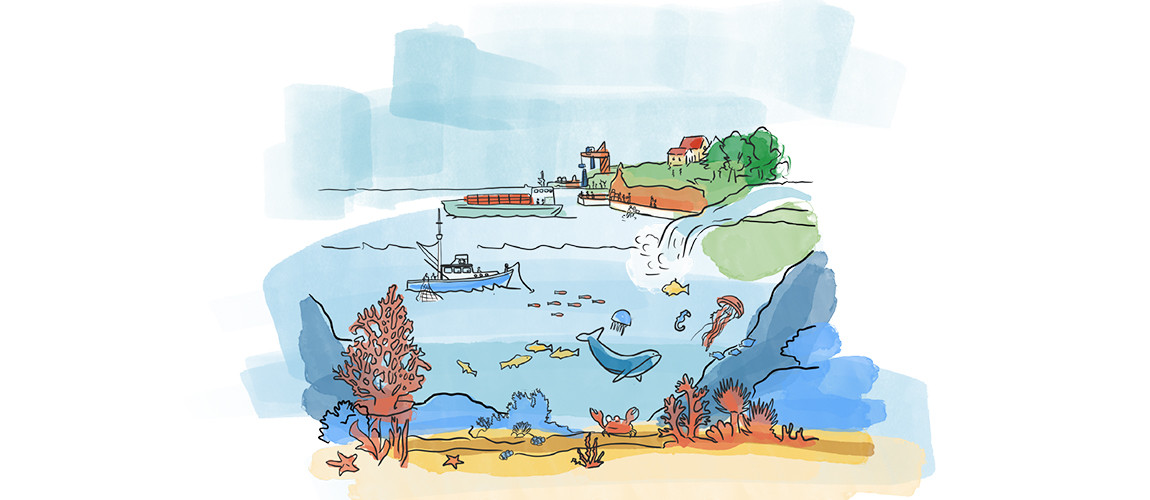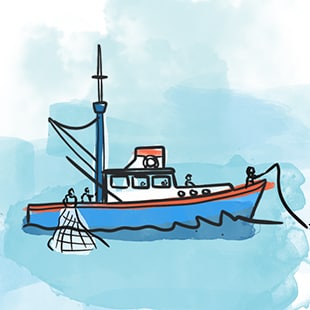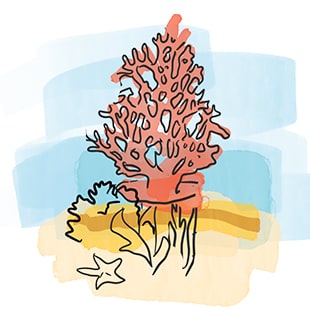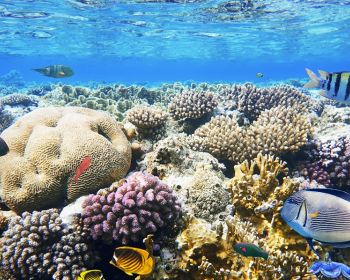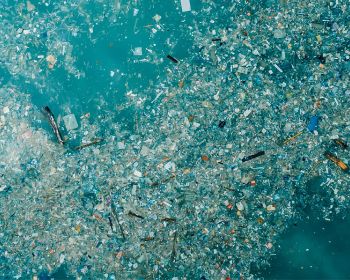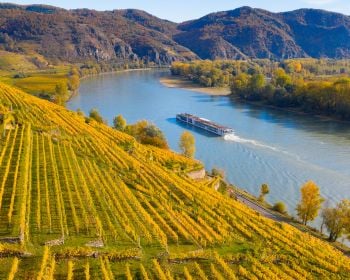Why is a financial institution like BNP Paribas participating in the United Nations Ocean Conference?
Because this is crucial. We may not necessarily realize it, but a healthy marine ecosystem is essential for the livelihoods of entire cities, providing millions of jobs and a key source of food. The Ocean is essential to life on Earth, covering 70% of its surface – which is why it is known as the “Blue Planet” – and home to unique biodiversity. Its role in climate regulation is decisive, since it absorbs 30% of global CO2 emissions.
The Ocean also represents a massive economy – estimated at nearly $3 trillion! – which is termed the “blue economy”. It includes industries such as maritime transport, renewable marine energy, fishing and tourism. However, the Ocean is currently being impacted by three major pressures caused by human activities, namely climate change, pollution, and the overexploitation of marine resources.
In concrete terms, how does BNP Paribas support the blue economy?
BNP Paribas played a pioneering role by publishing a public position on the protection of the Ocean as early as 2019. Today, we are taking stock of five years of the Group's initiatives to protect the Ocean.
In short, our observation is twofold: firstly, solutions to restore and preserve marine ecosystems exist, which is excellent news; secondly, these solutions are still too limited or fragmented to capture private capital on a large scale, and this is where we must intervene to support the blue economy and the scaling up of solutions.
Thus, we have defined three main areas to help build a sustainable blue economy: accompany our clients in their transition, notably their energy transition, because helping them reduce their carbon footprint will mitigate the pressure of climate change on the Ocean; support various projects and activities with concrete actions for the marine industries; and develop innovative financial instruments that can attract the capital needed to meet the challenges of marine conservation and restoration.
The Group also believes in the power of collective action to ensure the scaling up of solutions. With this in mind, we recently joined the “Ocean Risk and Resilience Action Alliance” (ORRAA) coalition. This multi-party alliance is one of a kind: active on a global scale, it brings together international players in finance and insurance, governments, scientists and members of civil society to address Ocean preservation. We also signed ORRAA’s #BackBlueOceanFinance initiative, which is supported by numerous coalitions and strives to ensure that the Ocean is integrated into financial and responsible investment strategies.
BNP Paribas supports concrete solutions and actions for the Ocean. Can you give us some examples?
There are many examples. In 2019, BNP Paribas set itself the objective of dedicating €1 billion to support its maritime transport clients in the ecological transition of their fleets, and this target has already been well exceeded.
In more concrete terms, if we want to talk about direct investment, there is the support provided by BNP Paribas Développement for the French start-up Bluefins, which is developing a propulsion system inspired by whale fins that can help reduce maritime fuel consumption by 20%! In terms of financial innovation, last year we were really proud to have structured the “Blue Finance” impact loan facility, which finances the sustainable management of Marine Protected Areas (MPAs) by local communities in developing countries. In terms of assets under management, since 2020, BNP Paribas Asset Management has been offering an ETF dedicated to the blue economy that allows individual clients to support the sector. BNP Paribas Asset Management also published the report "Sustainable By Nature Sequel: Reconnecting To Our Ocean" in June 2025 to provide a better understanding of the concrete measures taken to protect the Ocean. And, of course, for large corporate, institutional or sovereign clients, there are “blue bonds”. For instance, BNP Paribas co-structured a blue bond worth €500 million for the Saur Group in 2024 that will be used to finance projects for the collection and treatment of wastewater before it is carried into the Ocean.
Beyond our commercial activities, we strongly support scientific research through the BNP Paribas Foundation. Since 2010, the Foundation has provided support for scientific research projects related to climate and biodiversity, and most notably, to marine biodiversity. In January 2025, the Foundation also launched a new call for projects exclusively focused on marine biodiversity and coastal ecosystems, for a total amount of €7 million. This call for projects was officially endorsed by UNESCO under their “Ocean Decade” initiative.
And our own teams contribute to scientific research, as seen in the most recent research paper "Quantifiying biodiversity loss risk – Towards the assessment of corporate marine biodiversity footprinting", published this June by our environmental data research and analysis team, on the assessment of companies’ marine footprints. This paper is freely accessible, with the aim of providing an initial overview of the impact of economic activities on marine biodiversity and, ultimately, helping scientific and economic communities better understand the issues involved.
To guide our economic and financial decisions in an informed manner, investing in scientific research is an essential lever for the Group. By combining this with the synergies we hope to create – with ORRAA and during the UNOC and the BEFF in particular – there is a real opportunity to concretely deploy and scale up all these solutions, of which I’ve only even mentioned a few. This is an opportunity to rise to the challenge together!
BNP Paribas, official sponsor of the UNOC3 in Nice
The various Ocean summits this June all have common objectives: to accelerate action and mobilise all stakeholders to protect the Ocean and sustainability use marine resources. Four summits are scheduled over the course of this time:The One Ocean Science Congress (4-6 June, Nice), dedicated to scientific research, aims to reinforce and share oceanographic knowledge with key decision-makers.
- The One Ocean Science Congress (4-6 June, Nice), dedicated to scientific research, aims to reinforce and share oceanographic knowledge with key decision-makers.
- The Ocean Rise & Coastal Resilience Coalition (7 June, Nice), dedicated to the adaptation of cities and coastal areas, and in particular, islands threatened by rising sea levels.
- The BEFF or Blue Economy and Finance Forum (7-8 June, Monaco), dedicated to issues of financing and deploying capital for the conservation and sustainable use of the Ocean.
- The UNOC3, 3rd United Nations Ocean Conference (9-13 June, Nice), marked by strategic discussions, notably around the ratification of the High Seas Treaty, which aims to protect biodiversity beyond national jurisdictions. BNP Paribas is an official sponsor of UNOC3.
DIVE INTO BNP PARIBAS’ PROGRAMME AT THE BEFF AND THE UNOC
(Opens in a new tab)

